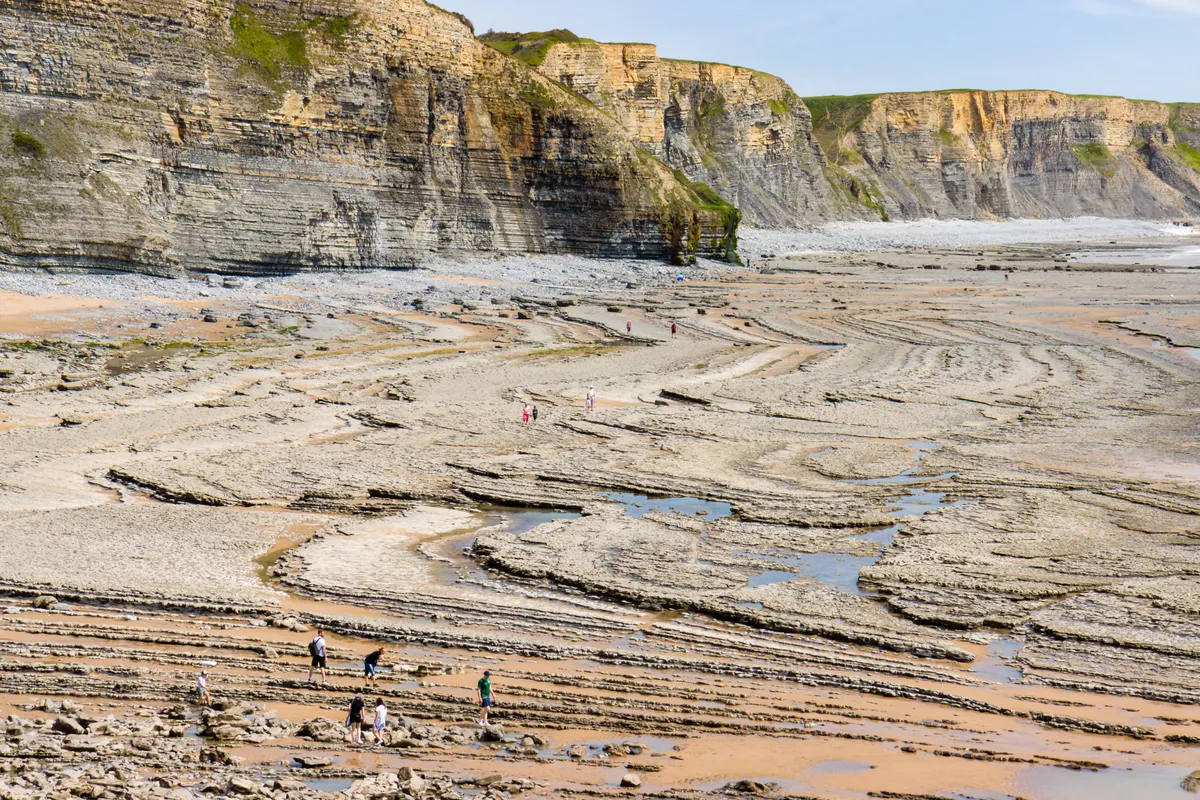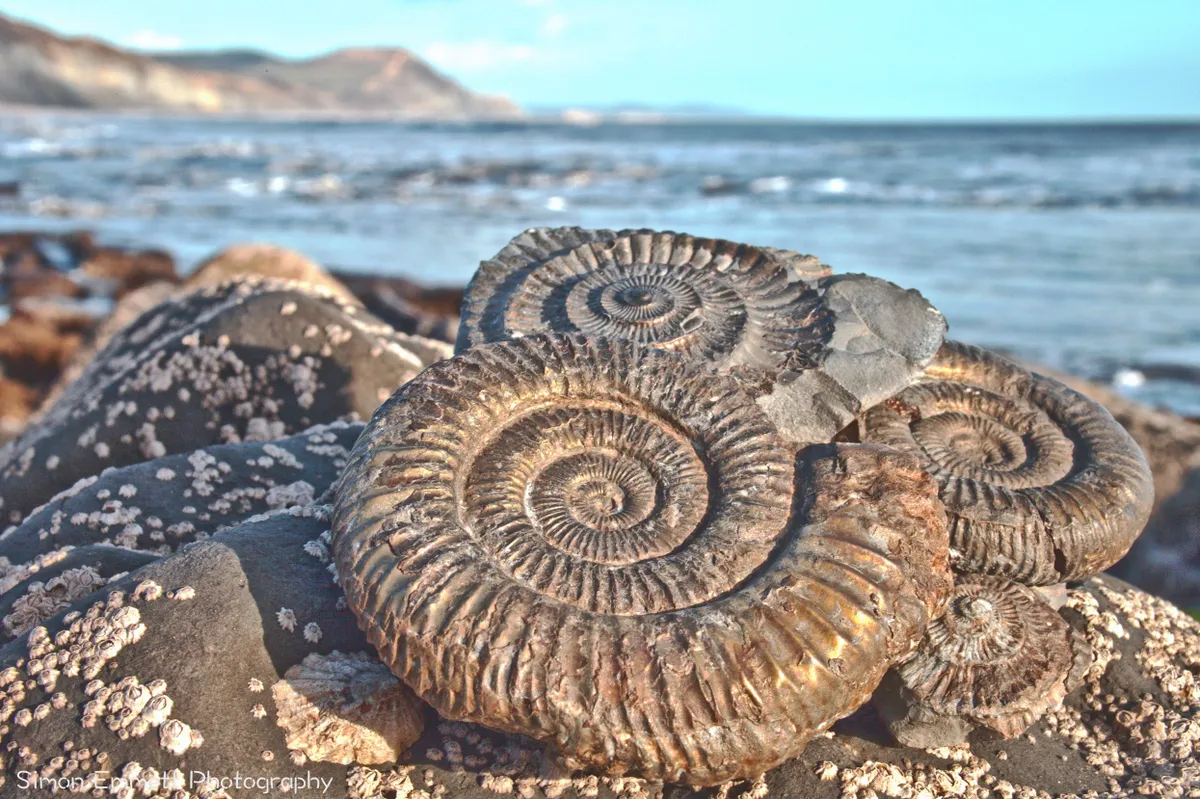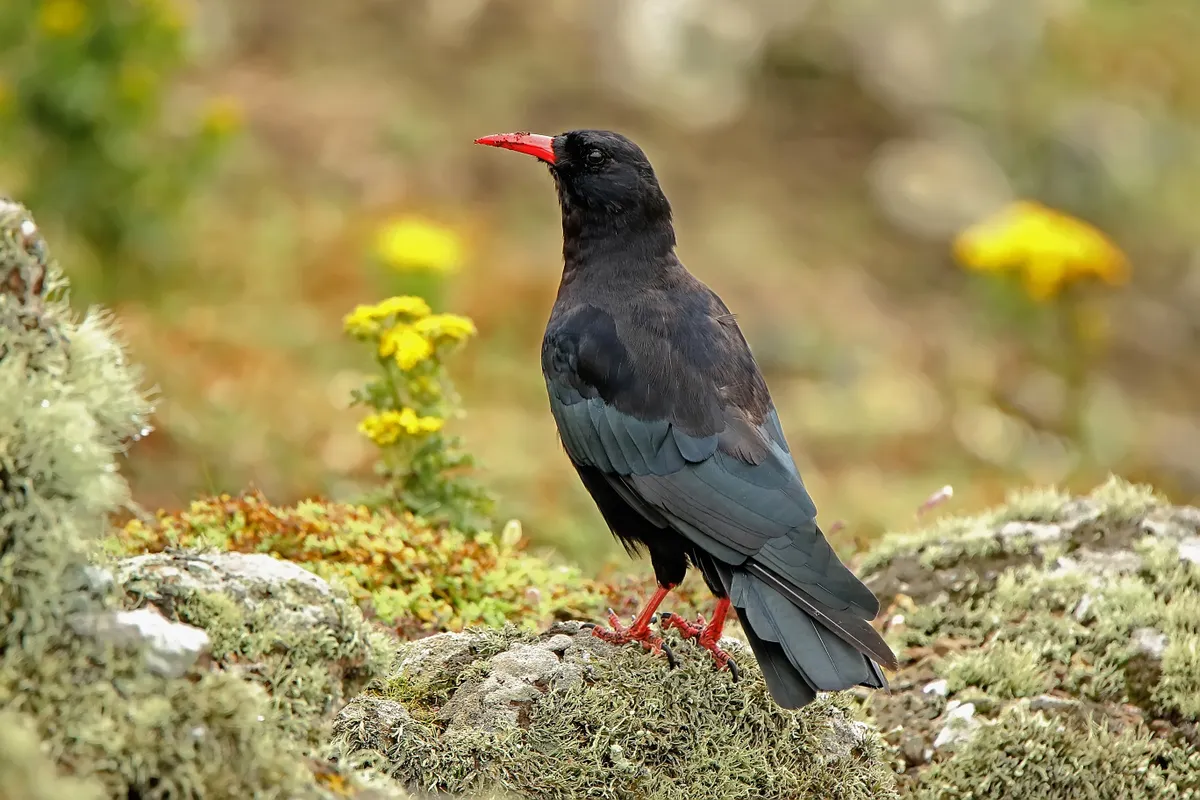A pilgrimage to the Glamorgan Heritage Coast never fails to take the breath away.
Take a dip in the sea, wander among the rockpools with your family, and take a walk along the incredible cliffs that maraud up and down the coast.

Geology of Dunraven Bay
Dunraven Bay, with its dramatic cliffs and other-worldly ribbons of limestone stretching out to sea, is one of the most striking beaches in South Wales. It never fails to boggle the brain that all of this used to be at the bottom of a warm, shallow sea near the Equator; the layers of blue lias rock (named for its grey-blue colour) were laid down when dinosaurs roamed the Earth.
Battered by the elements, this compacted history is eroding before our very eyes, making it a prime spot for the amateur fossil hunter, while those armed with nets and buckets can lose themselves among the rockpools, searching for crabs, anemones and seaweed.

Dunraven Bay walk
If you’re keen to take in the bay’s more recent history, there is a short walk from the beach car park to the walled gardens, which once formed part of the estate of Dunraven Castle.
It was in 1803 that local MP Thomas Wyndham built a flamboyant neo-Gothic house on the estate, which was used as a convalescent home during both world wars. It is now a ruin where you can still see the stone archways and ice tower, but it is the breathtaking view of the neighbouring cove and Cwm Mawr waterfall cascading over the cliff that makes the uphill climb worth the walk.
There is a steep path down to the cove should you wish to explore, or you can head back to Dunraven Bay via the headland path to make it a circular walk, or return the way you came through the walled garden. All the while, keep your eyes peeled for the red-billed chough (pronounced ‘chuff’), a rare member of the crow family that likes to swoop and dive over the clifftops.
You can also reach Dunraven Bay with a walk from Ogmore-by-Sea, discovering teetering along cliff-tops, a lost village and countless rockpools.




